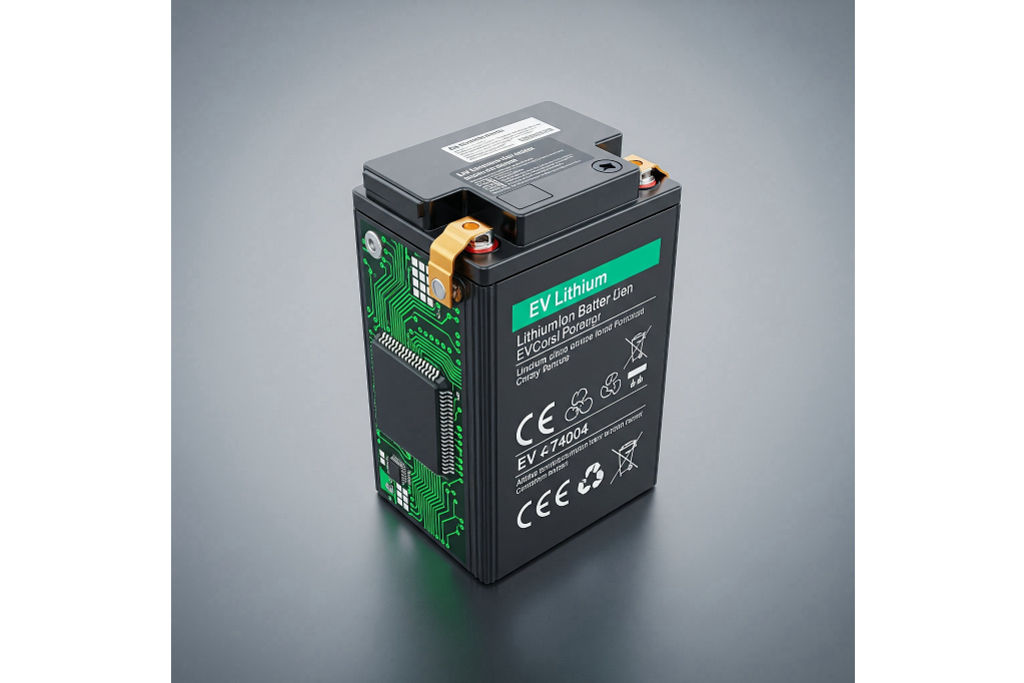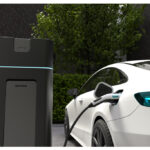How New Lithium-Ion Batteries Are Improving EV Longevity
Electric vehicles (EVs) have gone from futuristic concept to everyday reality. More drivers are choosing EVs to reduce their carbon footprint, save money on fuel, and enjoy a quieter, smoother ride. However, one concern continues to come up: how long will an EV last? The answer largely depends on one key component — the battery. Thankfully, advancements in lithium ion battery for EV use are changing the game.
In this blog post, we’ll explore how modern smart battery technology is reshaping the electric vehicle battery technology landscape. You’ll also learn about how EV battery works, what affects its lifespan, and how these new innovations are making EVs last longer than ever.

The Heart of the EV: The Battery
When we talk about the lifespan of electric vehicles, we’re really talking about the lifespan of their batteries. An engine of many gasoline cars could serve 10-15 years whereas when it comes to an EV, the most critical element to prolong its life is a battery. It retains the energy which drives the motor and all the electronic systems in the automobile.
Most EVs today rely on lithium-ion batteries. These batteries are of the same kind as those in smartphones, laptops, and even power tools, only of bigger size. They are able to store high energy reserves, charge at a fast rate and are light. They also wear out. The wear on charging and discharging may also be gradual particularly when it is done improperly. This implies that the battery is low in power as time passes, resulting in a low driving range.
How Does an EV Battery Work?
Understanding how EV battery works is key to understanding how new technology improves it. A battery in an EV is composed of numerous smaller cells into modules. These cells include a lithium based electrolyte and content such as nickel, manganese and cobalt. During driving, the charge carrier is charged with lithium ions and transfers between the anode and cathode which forms an electricity flow in order to operate the motor. As you charge the battery the ions move in the opposite way.
This process is effective but generates heat and pressure on the internal structure of the battery. This may lead to deterioration of battery in the long term in case it is subjected to high temperatures, extreme charging rates, or frequent complete discharges.
Smart Battery Technology: The Game-Changer
Now here’s where things get exciting. Smart battery technology is being developed and added to many new electric vehicles. But what exactly is it?
Smart battery technology includes sensors, software, and onboard battery management systems (BMS) that monitor the battery’s health in real time. These systems regulate the movement of energy in the battery and deny it of bad charging or discharging profiles. To give an example, when the battery becomes too warm the smart system may cool or reduce the charging speed. This makes the battery secure and assists in prolonging its life.
Another benefit? Predictive maintenance. Using intelligent technology, the car will be able to notify the driver when a battery cell is indicating possible premature failure so that a repair involving replacement of the battery can be done before a serious breakdown takes place. It also assists in compiling data so that the car manufacturers will make better batteries in future.
Improvements in Battery Chemistry
Besides smart systems, advances in the chemistry of the batteries themselves are improving the lifespan of electric vehicles. Researchers and manufacturers are exploring alternative materials and structures to make batteries last longer and perform better.
Some key improvements include:
- Solid-state battery technology: These are battery technology based on the solids electrolyte (not liquid), and thus there is reduced hazard of occurrence of a fire, and subsequently results in the increased energy density.
- Silicon anodes: Silicon can be used to replace graphite; this can give a cell the ability to store enormous amounts of energy.
- Cobalt-free batteries: Cobalt is costly and has issues with the environment. Older types of chemistries are making use of more renewable materials.
Together, these changes mean today’s EV batteries can last much longer than their earlier versions — in many cases, up to 300,000 to 500,000 km, or 10–15 years of use.
How Long Do EV Batteries Really Last?
With these improvements, the lithium ion battery for EV cars is more durable than ever. A lot of manufacturers now started giving 8-10 years of warranty on the batteries. As data in the real world shows, the majority of EV batteries can contain 70-90 percent of their initial capacity even after 8 years.
Actually, as a problem of diminishing battery capacity, it is not as rapid as some people got frightened when electric cars were introduced. Thanks to modern electric vehicle battery technology, batteries are holding up well even in older models like the Nissan Leaf or Tesla Model S.
And when EV batteries do eventually fall out of use in a car, they can frequently be re-purposed elsewhere first, say to house solar energy storage to create an off-peak fuel cell at home, before finally being fully recycled.
Charging Habits That Make a Difference
Aside from new tech and chemistry, how EV battery works in daily use also affects its longevity. Thankfully, smart charging practices can help extend battery life.
Here are a few tips:
- Avoid full charges and full discharges: Try to keep your battery between 20% and 80%.
- Use Level 2 charging when possible: Fast charging is convenient, but frequent use can speed up wear.
- Don’t leave your EV fully charged for long periods: Especially in hot climates, this can increase battery stress.
- Park in shade or indoors: High heat is one of the biggest enemies of battery health.
Most new EVs come with built-in features to help manage these habits automatically — another benefit of smart battery technology.
Future Outlook: Even Better Batteries Ahead
Battery technology for electric vehicles has a promising future. Both battery manufacturers and automakers are making significant investments in R&D. We’re witnessing promising breakthroughs:
- Faster charging without damage
- Greater range per charge
- Longer lifespans with minimal degradation
- Lower cost batteries for more affordable EVs
As a result, the total lifespan of electric vehicles is expected to increase significantly. Certain analysts even calculate that eventually EV batteries might be able to last even 1 million miles, and this is likely going to be achieved through efficient cooling, AI power to monitor and to manage the battery, and better materials.
Conclusion
In conclusion, the evolution of lithium ion batteries for EV use is revolutionizing the electric vehicle market. Through smarter systems, improved materials, and better understanding of how EV batteries work, drivers can now enjoy longer-lasting, more reliable cars.
Battery life is not as much of a problem anymore provided that more people are in need of converting to electric. With smart battery technology leading the way, EVs are proving to be not only cleaner and more efficient but also more durable than ever before.
If you’re thinking about buying an electric car, you can feel confident knowing that today’s electric vehicle battery technology is built to go the distance — and the best is still to come.












